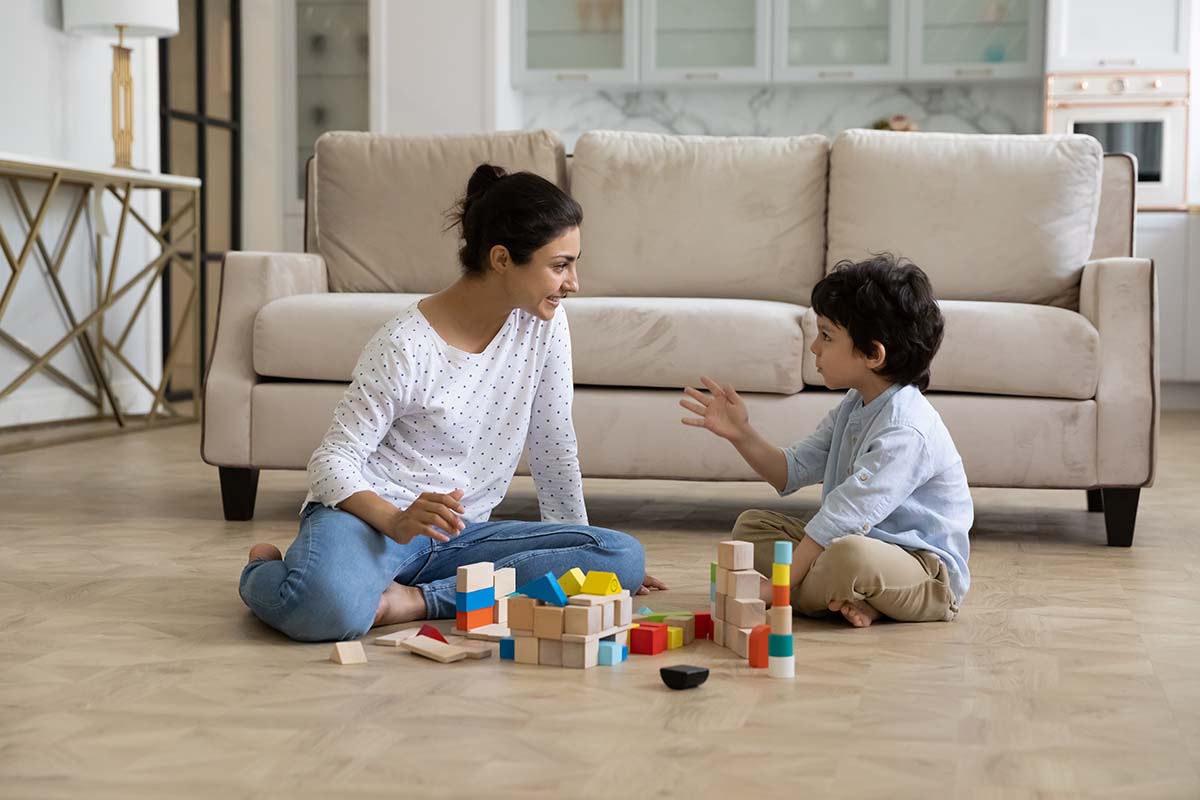
It’s a scene we all know well, the after-school-shuffle. Everyone’s together, it’s loud and busy, there’s dinner to be cooked, there’s laundry to be done, you look at your child and ask “What did you learn today?” The response is almost always some variation of “I don’t know” or “nothing.” It can be discouraging at best. At Spark Math by Spark Education we know the struggle. We want to inspire young learners and empower caregivers with questions that will really get your kids talking and inspire deeper learning. Here are some after school conversation starters to connect with your kids.
Not sure where to start? What questions will really get your kids talking? Don’t worry, we’ve got you covered. In this article you’ll find our top five questions to ask to get your kids talking and give you insight into what they’re really learning at school.
1. What is one thing that you were grateful for today at school?
Starting all things with gratitude sets the mood for the rest of the conversation. Reflection and gratitude is a great way to get your child primed to talk about their day. You’re ensuring that their social and emotional needs are met first before digging into what they’ve learned.
2. What challenged you today?
It is an important lesson; challenges encourage creative and critical thinking skills that result in a deeper level of learning. Admitting that something is hard in a do-it-yourself society can be just as difficult even at a young age. This is a skill that can be demonstrated by you. “Today at work I felt challenged when ____. What was hard for you today?” This is a great place for followup questions to learn how they worked through the challenge. “Can you show me the math problem that was hard for you? Maybe we can do it together.” This allows them to know that they’re not alone and they feel more confident asking for help.

3. What was your favorite activity of today?
Allow this to be a break, you just asked about something that was hard, that’s a vulnerable place for anyone. This is story time, where they can tell you about something not strictly education based, though it can be . This is about them, their relationships, who they are and what they enjoy doing.
4. What questions did you ask today in class?
This encourages your child to think about a question that they had and be able to tell you what they learned from it. This repetition can turn abstract concepts, especially math and science, into concrete learning. Children learn best from student-led learning, being able to repeat a loud and teach something that they have learned.
5

6. It’s okay to have a hard day at school
We all have them. Sometimes, as caregivers, the best thing that we can do is be present in these moments, days or even seasons. Encourage your child and guide them to wins rather than focusing on what made them feel that everything was a challenge. Our job is to guide them through the hard, help them learn from it, and allow them to see how their choices can change their perception. This is a great place for a follow-up question that will guide them in that direction.
7. What would you have liked to do differently?
This returns power to the child in what may feel like an otherwise powerless situation. Focus on what they could do differently, not what they wished was different. This can be a reaction, a practice, or the courage to ask a question. Showing children that they have choices when they are in a classroom setting can determine the outcome of their success.
Final tips for an after school conversation with your kids
Never cut the conversation short. If an answer leads to more questions or further conversation on the topic, encourage your child to continue talking.
Allow time for discussion. If you know that dinner prep is going to be intensive, don’t start the conversation then, wait until there’s genuine, unforced space to talk.
Practice makes perfect. Like all things, building healthy habits into your lifestyle takes practice. Once you build a habit of engaging, critical thinking conversations with your children, they will begin offering information or asking questions themselves.
Looking for more fun ways to connect with your kids? Check out this article about fun math games your kid will love. Looking for a great way to make your kids math aces? Check out a free trial class for Spark Math.




